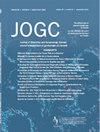Transfusion Testing During Routine Pregnancies: Consensus Recommendations from a Modified Delphi Process
IF 2.2
Q2 OBSTETRICS & GYNECOLOGY
引用次数: 0
Abstract
Objectives
To standardize perinatal transfusion testing and Rh immunoglobulin (RhIG) administration in low-risk pregnancies through the creation of expert consensus statements.
Methods
A modified Delphi consensus process involving iterative rounds of voting on statements by a national expert panel. After each round, responses were analyzed and resent to the panel for further ratings until consensus was achieved, defined as Cronbach’s alpha >0.95 or a maximum of 3 voting rounds. Once consensus was achieved, statements with a median score ≥4 out of 5 were included.
Results
Forty-six expert panellists participated, with representation across Canadian provinces and care providers including maternal–fetal medicine, obstetrics, family practice, transfusion medicine, neonatology, midwifery, nursing, and a patient representative. Twenty-one statements related to perinatal transfusion testing and RhIG administration met criteria for inclusion in the final set of statements. The 2 statements with the lowest proportion of “strongly agree” votes pertained to eliminating the 28-week group and screen in those with negative first-trimester screens and eliminating the need for RhIG before 120 weeks in threatened, spontaneous, or therapeutic abortions.
Conclusions
These 21 expert consensus statements aim to harmonize perinatal practice across Canada, addressing conflicting guidelines and resource limitations, especially in rural settings. This is the first set of expert consensus statements that captures the Canadian context, with coverage from the first trimester to the birth of the neonate. These statements follow Choosing Wisely principles. Some are practice-changing and will require efforts to ensure implementation into practice.
常规妊娠输血检测:来自改进德尔菲过程的一致建议。
目的:通过建立专家共识声明,规范低危妊娠围产儿输血检测和Rh免疫球蛋白(rhg)给药。方法:修改德尔菲共识过程,包括对国家专家小组的声明进行反复投票。在每一轮投票后,对反馈进行分析并重新提交给小组进行进一步评级,直到达成共识,定义为Cronbach alpha >0.95或最多3轮投票。一旦达成共识,中位评分≥4分(满分5分)的陈述被纳入。结果:46名专家小组成员参加了加拿大各省和护理提供者的代表,包括母胎医学,产科,家庭实践,输血医学,新生儿学,助产学,护理学和患者代表。与围产期输血检测和RhIG管理相关的21项陈述符合纳入最终陈述的标准。“强烈同意”投票比例最低的两项声明涉及取消28周组,并对妊娠早期筛查阴性的患者进行筛查,以及取消在12周之前进行威胁流产、自然流产或治疗性流产的必要性。结论:这21份专家共识声明旨在协调加拿大各地的围产期实践,解决相互冲突的指导方针和资源限制,特别是在农村地区。这是第一套专家共识声明,涵盖了从妊娠早期到新生儿出生的加拿大背景。这些陈述遵循明智选择原则。有些是不断变化的实践,需要努力确保付诸实践。
本文章由计算机程序翻译,如有差异,请以英文原文为准。
求助全文
约1分钟内获得全文
求助全文
来源期刊

Journal of obstetrics and gynaecology Canada
OBSTETRICS & GYNECOLOGY-
CiteScore
3.30
自引率
5.60%
发文量
302
审稿时长
32 days
期刊介绍:
Journal of Obstetrics and Gynaecology Canada (JOGC) is Canada"s peer-reviewed journal of obstetrics, gynaecology, and women"s health. Each monthly issue contains original research articles, reviews, case reports, commentaries, and editorials on all aspects of reproductive health. JOGC is the original publication source of evidence-based clinical guidelines, committee opinions, and policy statements that derive from standing or ad hoc committees of the Society of Obstetricians and Gynaecologists of Canada. JOGC is included in the National Library of Medicine"s MEDLINE database, and abstracts from JOGC are accessible on PubMed.
 求助内容:
求助内容: 应助结果提醒方式:
应助结果提醒方式:


